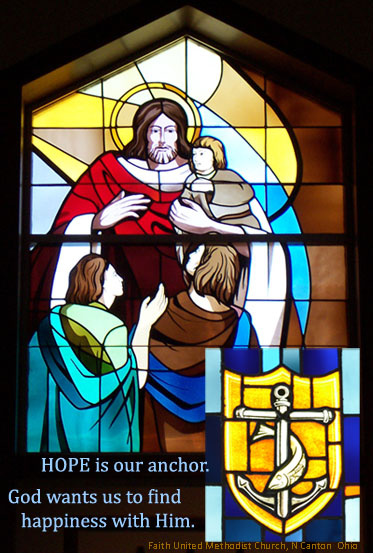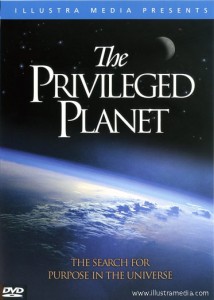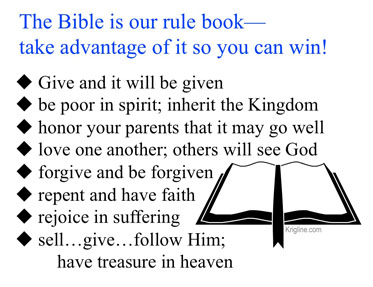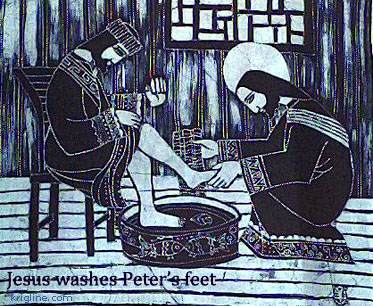↑What God Cannot Do
Pain, purpose and limitations can yield hope in tough times. ⇔
by Michael Krigline, March 1, 2015. www.krigline.com ⇔
This is a longer (original) version of a speech written for the Xiamen International Christian Fellowship. (You can find other messages I delivered at XICF at www.krigline.com–look for “things we have written.”)⇔
When people complain about all the pain in our world, the argument often sounds something like this: “If God is good then he would want his creatures to be happy; if he is all powerful he could do anything he wants to do, including prevent pain; so either he isn’t good or isn’t all powerful.” [endnote 1]
When I hear things like this, I’m first struck by the fallacy in the argument. The first sentence makes some bold presuppositions, chief among them being that happiness is the most important thing in life. Where does that come from? Even a cursory look at scripture shows that happiness is not the center of life; and in the “rat race” of evolutionary atheism, happiness has even less support as being the chief aim or guiding principle of life. Thus, the argument starts off about as well as saying: “If 2 plus 2 = 5, then 2+3 can’t equal 5”; well, 2+2 don’t equal five, so the rest of the hypothesis is irrelevant.
What is the chief end of man, or the most important thing in life. That would be the subject of a different article. But when we look at Biblical characters, and the nature of the world, it seems to me that “faith” is the answer. God seems to engineer life on this planet to make it possible for humans to develop faith, perhaps because faith is the currency of heaven. Of course, he also gives us the freedom to live entirely by sight, but doing so either lands us in hell (whether “happy” in this life or not) or deposits us at the gateway of heaven almost completely bankrupt in the currency of the realm. But as I said, that question must be left for another time.
The focus of this meditation is on the second part of the original argument, which makes an illogical assumption about what it means to be all powerful; namely the idea that if God is all-powerful, He can do anything. I believe that the Bible clearly says that there are things that God cannot do, and yet that does not make him less than all-powerful.
Now, I’m not talking about the nonsensical challenges that critics often throw out there. They say, for example, that if God is all-powerful, he could create a bar so strong that no one can bend it, but since even God can’t bend such a bar it proves that he isn’t all-powerful. What nonsense. You might as well say that “Even God can’t tell you how many meters are in an hour,” or complain that “God can’t make the sun set in the middle of the day.” (By definition, a day is measured by the course of the sun, so when it sets the day is nearly over; even if God made the earth spin faster, the sun would always set at the end of the day, not the middle.) Thus, nonsense is still nonsense, even when you preface it with “Even God can’t” do such-and-such.
But nonsense aside, are there things that God cannot do?
God is just, and has a good memory
We will mainly be in Hebrews 6 today. Hebrews 6 is talking about the faithful nature of God’s promises and plans, and it also indicates a couple of things that are impossible for God to do.
First, it appears that God cannot be unjust and thus won’t forget the things we do in His name. Since the Christian life is supposed to be one of service, this is very comforting—unless of course you spend your life “receiving” from God without passing those blessings on to others. In a moment, Hebrews 6 will quote from Gen 12, where it says that even from the very beginning “passing on our blessings” has been part of God’s unchanging plan for His creation, for he told Abraham (Gen 12:2), “I will bless you and make your name great, so that you will be a blessing…, in you all the families of the earth shall be blessed.” Abraham was blessed to bless others, and so are we.
But here’s the text in Hebrews 6:10-12, indicating that God cannot be unjust or forget our service: “For God is not unjust so as to overlook your work and the love that you have shown for his name in serving the saints, as you still do. 11 And we desire each one of you to show the same earnestness to have the full assurance of hope until the end, 12 so that you may not be sluggish, but imitators of those who through faith and patience inherit the promises.” The rest of that passage is a contrast to the people the writer had been talking about—people who had refused to “go on to maturity” from the foundation of repentance, resurrection and judgment (quoting from Hebrews 6 here); people who tasted of God’s goodness but then fell away. To his Christian readers, the author says expect better of YOU, however, for you have kept serving in earnestness, which will lead to the full assurance of hope until the end.
So, are you lacking hope this morning? The remedy in Hebrews is to get out there and be imitators of those who have faith and patience while continuing to show love for His name in serving the saints.
There’s no one greater, and His purpose cannot change
The author continues with two more things it is impossible for God to do: He cannot swear by anyone greater than Himself, and the character of His purpose cannot change. In the first century, people believed in many Gods, as they do today. I read somewhere that all addictions are (at the heart) a “worship” problem, and I can see that. We tend to become like the god we worship, and the modern list of addictions and personal gods is long indeed. So, saying that God can’t swear by anyone greater than Himself is no footnote, but bedrock truth. As Isaiah recorded it, from God’s own mouth: “Turn to me and be saved, all the ends of the earth! For I am God, and there is no other. 23 By myself I have sworn; from my mouth has gone out in righteousness a word that shall not return: ‘To me every knee shall bow, every tongue shall swear allegiance.’” (Isa 45:22-23) It is impossible for God to find anyone greater than Himself.
Back to Hebrews 6:13-17: “For when God made a promise to Abraham, since he had no one greater by whom to swear, he swore by himself, 14 saying, “Surely I will bless you and multiply you.” 15 And thus Abraham, having patiently waited, obtained the promise. 16 For people swear by something greater than themselves, and in all their disputes an oath is final for confirmation. 17 So when God desired to show more convincingly to the heirs of the promise the unchangeable character of his purpose, he guaranteed it with an oath…”
This third “inability”—the character of God’s purpose cannot change—is also astounding. God does not change; our God “with whom there is no variation or shadow due to change.” (James 1:17). And if He is trying to show us the unchangeable character of His purpose, it has to mean that God’s purpose for this world, and everything in it, has not and never will change. It must, therefore, be a grand purpose. Mountains rise and fall; nations conquer and are conquered; people come and go; even the church goes through periods of corruption and renewal; spiritual gifts and spiritual truths are exercised and then lost for a while only to be rediscovered. But a comet could smack into a corner of our planet today and the character of God’s purpose remains unchangeable. It has to be something huge, and without question something bigger than me and my life, and my happiness—though wonder of wonders, God chooses to make my tiny, temporary life a part of His unchangeable purpose! (Amen!)
What is that unchangeable purpose? To answer that would take another sermon, but we get a glimpse in Col 1:16-17, “For by him [Jesus, the image of the invisible God] all things were created, in heaven and on earth, visible and invisible, whether thrones or dominions or rulers or authorities—all things were created through him and for him. And he is before all things, and in him all things hold together.” This is echoed in Rom 11:36, where it says, “For from him and through him and to him are all things. To him be glory forever. Amen.” Ephesians 3 also talks about God’s “eternal purpose that He has realized in Christ Jesus our Lord” (3:11), namely that “through the church the manifold wisdom of God might now be made known to the rulers and authorities in the heavenly places.” (3:10) If this is God’s unchanging, unchangeable, plan—to magnify His son, Jesus, when all people and all powers bow before Him—then it would serve us well to get on board with that plan now.
God cannot deny Himself
And this brings us to the fourth “impossible” thing. Hebrews 6:18 tells us it is impossible for God to lie. This is verified in Numbers 23:19, which likewise says that “God is not man, that he should lie.” One might be able to argue that some of the other things I’ve mentioned today are things that God cannot do because God has chosen not to do them, but this one clearly says lying is something impossible for God to do. Now before looking at this text, I’ve got to dwell here for a moment, because it is telling us something profound that should really help us in times when life doesn’t make sense; in times of pain when it seems like God is absent or uncaring. I’m talking about the fact that God MUST stay true to His own character. He cannot lie. He cannot sin. He cannot be unholy. He cannot be unfaithful. He cannot be unloving. WOW. He cannot do these things, because God cannot stop being God. Or as Paul said in 2 Tim 2:11-13: “If we have died with him, we will also live with him; 12 if we endure, we will also reign with him; if we deny him, he also will deny us; 13 if we are faithless, he remains faithful—for he cannot deny himself.”
God cannot deny Himself. God cannot act contrary to His own character. God is love. Amen? God is holy. God is faithful. God cannot lie, and He cannot deny Himself. God cannot cease to be God.
 Now wait a minute, Michael, you might say. When my friend, a pastor’s wife, died after of a questionable surgical procedure, was that “loving”? When my father got Parkinson’s disease, with all the terrible ramifications that wrecked on my family, was that “loving and faithful”? When thousands die in a natural disaster, is that “loving”? And when Jesus said, “I’m coming soon” and yet makes us wait over 2000 years, is that not a lie? These are tough questions—if we view life from our perspective, which is of course the natural way to view life. But what if there is a better angle from which to view life? That is what this whole passage in Hebrews is calling us to do—to “leave the elementary doctrine of Christ and go on to maturity…” (6:1) to set our anchor in the heavenlies, not in the clay of earth (6:19).
Now wait a minute, Michael, you might say. When my friend, a pastor’s wife, died after of a questionable surgical procedure, was that “loving”? When my father got Parkinson’s disease, with all the terrible ramifications that wrecked on my family, was that “loving and faithful”? When thousands die in a natural disaster, is that “loving”? And when Jesus said, “I’m coming soon” and yet makes us wait over 2000 years, is that not a lie? These are tough questions—if we view life from our perspective, which is of course the natural way to view life. But what if there is a better angle from which to view life? That is what this whole passage in Hebrews is calling us to do—to “leave the elementary doctrine of Christ and go on to maturity…” (6:1) to set our anchor in the heavenlies, not in the clay of earth (6:19).
Take my last example, for starters. How could anyone call 2000 years “soon”—unless the one speaking measures time from the vantage of eternity, in which case 2000 years is the mere blink of an eye. (2 Pet 3:8) And if we can be wrong about the definition of “soon”, might we not also be terribly mistaken about the true definition of things like holiness, faithfulness and love? If God is love, then by definition, everything He does is loving—He cannot deny himself. So, the problem lies in my inadequate definition of love, not in God’s actions or inaction. Add the truth that His purpose cannot change and we begin to glimpse life from behind the curtain, where Jesus is; to see things from that higher perspective. Now, I’ll return to love in a moment, but let’s look at this anchor offered to us in the passage that says it is impossible for God to lie.
The anchor of hope; a place of true happiness
Heb 6:18-20, running up from verse 17: When God desired to convince us (heirs to the promise given to Abraham) of “the unchangeable character of his purpose, he guaranteed it with an oath, 18 so that by two unchangeable things, in which it is impossible for God to lie, we who have fled for refuge might have strong encouragement to hold fast to the hope set before us. 19 We have this [hope] as a sure and steadfast anchor of the soul, a hope that enters into the inner place behind the curtain, 20 where Jesus has gone as a forerunner on our behalf, having become a high priest forever after the order of Melchizedek.”
I don’t have time to explain about Melchizedek (the writer explains in the next section). Basically, he is saying that Jesus is an eternal kind of high priest, not because of his ancestors but by the power of an indestructible life (7:16), not offering the blood of a lamb on a man-made alter, but offering his own blood in the heavenlies (9:11-12), and thus the risen Jesus is ever living to intercede for us (7:25).
 That’s all really cool, but let’s not miss the point of vs 18-20.
That’s all really cool, but let’s not miss the point of vs 18-20.
The character of his purpose is unchangeable; God cannot lie; and thus we can have strong encouragement to hold fast to HOPE no matter what is happening (good or evil; joy or pain) in our lives or in our world. But this is true only if we see from God’s perspective. The anchor for our souls is not in human conceptions of love and happiness—the weak, self-centered claim that “God loves me and wants me to be happy”—our anchor is set in the inner place behind the curtain, in Heavenly realms, where Jesus has gone before and lives to intercede for us.
Does God want you to be happy? Well, yes, but most of us have a terribly diluted definition of what happiness is, because we don’t see from God’s perspective. Yes, God wants us to be happy but He wants something else even more (something of which happiness is just a byproduct). God wants us to be holy, because God wants us to live with Him; indeed, abide in Him (for “in [His] presence there is fullness of joy; at [His] right hand are pleasures forevermore” Ps 16:11). And this means that—BECAUSE God loves us and because His plans do not change—God just can’t keep His loving hands off of us. Like a creative artist who relentlessly chisels away at a rock to reveal the statue inside, or who endlessly tweaks his novel or masterpiece to make it as perfect as possible, God loves his creations too much to leave us imperfect. You asked for a God of love, well, you’ve got it. Like the king who pushes his child to learn wisdom, knowledge, many languages, protocol and more, getting him/her ready to one day be king or queen, God pushes and teaches and trains us to fit us for roles in His heavenly kingdom that we cannot even imagine here below.
Strange rules that God lives by
 There’s at least one more thing God cannot do, and I think this points to another helpful, mind-bending principle. God apparently cannot forgive sins without the shedding of blood. In his explanation of Jesus’ role as eternal high priest, the author of Hebrews says, (9:22) “Indeed, under the law almost everything is purified with blood, and without the shedding of blood there is no forgiveness of sins.”
There’s at least one more thing God cannot do, and I think this points to another helpful, mind-bending principle. God apparently cannot forgive sins without the shedding of blood. In his explanation of Jesus’ role as eternal high priest, the author of Hebrews says, (9:22) “Indeed, under the law almost everything is purified with blood, and without the shedding of blood there is no forgiveness of sins.”
Why blood? I don’t know why. Maybe because blood is precious. It is the “gift of life”; Red Cross blood drives testify to the fact that we can’t synthesize blood or get it from anywhere except a living creature, so maybe blood represents or even somehow contains the life-force of a person. Maybe, “That’s just the rules.” And praise God for that rule, written before the foundation of the world, because without it you and I would have NO hope of forgiveness and thus of eternal life. We could come no closer to this holy, all-powerful God, than a matchstick could approach the sun. But because of this odd, somewhat unexplainable, wonderful rule, my sins have been nailed to a cross and forgiven by the blood of my savior. Halleluiah!
So this is my last principle. God cannot break the rules, and I think this goes much further than the rule about blood and the forgiveness of sin. The corollary of this principle is that God doesn’t mess with the rules or mechanics of life. He designed our planet perfectly, to sustain life as we know it. A manager who has a perfectly-functioning machine or supply chain would be a fool to tinker with it. And our earth is far more complicated than any machine or supply chain.
 Just take plate tectonics, for an example. The earth’s paper-thin crust (only 4 to 30 miles thick) is made of a dozen “plates” that are in constant motion. “This dynamic geology regulates the planets interior temperature, recycles carbon, mixes chemical elements essential to living organisms, and shapes the continents.” [endnote 2] If the crust was significantly thicker, this motion—plate tectonics—could not take place. Well, that sounds great! It’s terrible when an earthquake snuffs out many lives, especially from the perspective of the victims’ loved ones. But without plate tectonics, with the consequential earthquakes, tsunamis and volcanic eruptions, scientists say that ALL life on earth would end. (That would be much worse, for all of us!)
Just take plate tectonics, for an example. The earth’s paper-thin crust (only 4 to 30 miles thick) is made of a dozen “plates” that are in constant motion. “This dynamic geology regulates the planets interior temperature, recycles carbon, mixes chemical elements essential to living organisms, and shapes the continents.” [endnote 2] If the crust was significantly thicker, this motion—plate tectonics—could not take place. Well, that sounds great! It’s terrible when an earthquake snuffs out many lives, especially from the perspective of the victims’ loved ones. But without plate tectonics, with the consequential earthquakes, tsunamis and volcanic eruptions, scientists say that ALL life on earth would end. (That would be much worse, for all of us!)
And this is just one of about 20 complicated factors that make life possible on this very privileged planet. The size and placement of the moon, the type of star our solar system has, our distance from it, gravitational pull, our magnetic field, oxygen-rich atmosphere, liquid water…. Some scientists have estimated the probability of all these factors existing in one place at one time in the universe, and it’s like one chance in 10 to the 15th power (one-thousandth of a trillion). God had to overcome incredible odds to create life, and “natural laws” are the rules that make on-going life possible. We mustn’t think of “creation” the way we create, constantly refining something as we work toward the best end possible within our limitations. God saw the end before the beginning, and started with the perfect solution, knowing that both sin and the second law of thermodynamics [ever-increasing entropy/disorder] would take their toll. His original design balanced what is essential for our existence with what is needed for a relationship with Him and with each other. If God is “all powerful” could He have changed these factors, like plate tectonics and free will, so that earth couldn’t have earthquakes or war? Not without altering the universal rules of chemistry, physics and love, and God doesn’t play the game that way. He plays by the rules.
 Now, this does not rule out the role of miracles. We think kindly of the chess opponent who let’s us take back a stupid move, perhaps once in a game; we would probably not want to play with someone who allowed every move to be rethought, for us and for himself, much less would we wish to play with someone who had the power to keep changing the rules.
Now, this does not rule out the role of miracles. We think kindly of the chess opponent who let’s us take back a stupid move, perhaps once in a game; we would probably not want to play with someone who allowed every move to be rethought, for us and for himself, much less would we wish to play with someone who had the power to keep changing the rules.
Think of it another way. The best basketball player in the world can’t hold the ball with both hands and run down the court; the best chess player in the world cannot move his king two spaces; the most powerful runner in the world cannot start running two seconds before the starting gun goes off. Why not? It isn’t because they are not the strongest or best, it is because those things would be against the rules.
It is not God’s nature to change, so we should expect some sort of consistency in a world he created. We appreciate the occasional miracle, but would we want a God who is constantly shifting like the sands or shadows? Can you imagine the algorithm needed to decide when to break the rules and in whose favor—whether to answer the prayer for rain from the desperate farmer, or the prayer for sunshine from the passionate evangelist who has rented an outdoor arena? And would we want a world where wood, for example, could be strong enough to hold up a roof one moment and yet soft as a pillow the next, simply because a man used his free will to either use it as a beam, or to hit his child with it?
Free will, and unseen games of strategy
Free will is another unchangeable entry in God’s rule book. While you have breath, you will always be free to choose Christ. But you will also have the choice to reject the truth and choose sin, and that awesome gift of choice has filled history with greedy, evil people who abuse their children, or neighbors, or ethnic groups different from theirs. Yes, natural disasters have claimed countless lives, but I dare say that sin, and its children like violence, unequal distribution of resources, discrimination, slavery, abuse and war have claimed far more. As CS Lewis put it, “Try to exclude the possibility of suffering which the order of nature and the existence of free wills involve, and you find that you have excluded life itself.” [endnote 3]
Apparently, in God’s unchangeable plan, He weighed the cost of free will against the joy set before Him of having a kingdom of people who have freely responded to His love, and He considered it worth the price.
As we saw above, scripture indicates that God’s ultimate purposes do not change. There are things about God’s will that are always true. For example, it is not his will that any should perish. (2 Pet 3:9) But people do perish; millions do every year. This is possible not because God isn’t powerful enough to keep people from perishing or sinning, but because it is also God’s unchanging will that humans always have a choice—maybe because we are made in God’s image, God is love, and love always involves choices. Now, one could argue that God is responsible for all suffering because he is responsible for giving humans free will. I’d buy that. But it is a rather cheap shot to say that the giving of an inestimably precious gift somehow caused lots of people to use that gift very badly.
The Bible also says that invisible forces are constantly at work. The way I read the Bible, it sure looks like life on our planet is a battleground (a civil war?) between angelic powers. The rules were drawn up before the war began, and—perhaps because God’s character prevents him from being unfair—neither side has the right to change the rules. Human souls are the prize. One side seduces with money and power, bent to kill, steal and destroy. The other side calls followers to eternal life, as they sacrifice, educate, heal, meet needs, and lift eyes to Heaven along the way. One side is dominated by the father of lies; the other by One for whom it is impossible to lie. That’s quite a contrast, isn’t it?
The seen and unseen realms exist in a remarkable tension. That which is seen can affect the unseen, just as the choices of one individual can affect many others. The Bible gives many instructions; following them can protect us, just as following the rules in a sport can help prevent unnecessary injury. But we often ignore them, don’t we? The boxer can choose to bite his opponent’s ear; the cook can choose to include too much sugar or fat; the smoker is indifferent to his child’s lungs; the judge or legislator mandates actions that peel back a part of God’s supernatural protection… and each choice has consequences on more than the one making the choice. When we blame God, we might be pointing at the wrong person. Blame the ones who ignore God’s gracious instructions and stern commands; blame the rule-breaking athlete, the smoker, the judge, or the nation that is busily crawling out from under the Lord’s protective hand. (See Isa 22:8; 63:10)
In Jesus’ “Parable of the Weeds” (Matt 13:24-30, explained in vs 36-43), He points out that the Son of Man (Himself) sows “good” into the world, while the devil sows “weeds,” that is, “the sons of the evil one.” They are allowed to grow up together until “the end of the age,” and the “weeds” are not pulled out in advance lest the “good” is uprooted at the same time. So, maybe God doesn’t “pull up” evil in our world because too many “innocent” bystanders would “go” in the process. But God’s ultimate concern is “the harvest” of good at the end, and thus He is willing to endure what is “less than perfect” during this age. For the time being, saints and sinners, good and bad, must live side by side, but that will NOT always be the case (according to Jesus’ interpretation–see the reference above).
Now, just because there are invisible forces at work, we shouldn’t be too quick to lay blame on supernatural phenomena. We’ve already seen that natural disasters can be reckoned as necessary for life to exist. Insurance agents call these “acts of God,” but that seems unfair to me; but it would be equally unfair to attribute them to Satan. Fire can warm us, cook our food, or consume our homes, with or without assistance from the good or the evil. Demonic forces are certainly in play when a man exercises free will to hit his child with a stick, or a ruler chooses to deprive his people from access to good things like food or the Bible, but even here we must be careful in laying blame. The stick made no choice, but the man and ruler did (perhaps both prodded by and ignoring advice from supernatural sources); even the victim might have also made choices that affected the outcome. (Certainly, this is not always the case, but I know I’m more responsible for my own “ruin” than I like to admit.) As it says in Prov 19:3: “When a man’s folly brings his way to ruin, his heart rages against the Lord.”
This reminds me of what I read somewhere: “Sometimes I’d like to ask God why He allows poverty, famine, and injustice when He could do something about it, but I’m afraid God might ask me the same question.” I can’t understand how human beings could be so cruel as to enslave (much less to crucify) other human beings, any more than I can understand how the death of my first child or a friend’s cancer could “make sense.” But the Bible never indicates that we will ever “understand”; it tells us to trust and obey, and to abide in Him. Some say that they can’t understand how God can allow suffering to exist, and if He does allow suffering then this God isn’t worth believing in; I say that a God small enough to understand isn’t big enough to be God. God seems quite OK with our questions and research to figure things out (Prov 25:2), but I think we’ll always have more questions than answers. I don’t always like God’s or life’s incomprehensible ways, but it helps me to remember that this is war, and lots of terrible, unintended things happen in a war.
In the unseen war, both sides have certain supernatural maneuvers they can employ, but they can’t change the rules. For example, blind people cannot see, but God has allowed other people to learn how to make corrective lenses or even perform surgery that can restore sight. By faith (that word keeps popping up, doesn’t it?), people can even call forth the creative power of the Word and repair or replace a damaged eye. An angel, perhaps in answer to someone’s prayer for protection, could do something that blocks a sharp piece of glass from flying into someone’s eye. Those things are within the rules, even though there’s a rule that says blind people cannot see.
So, when people accuse God of not being all-powerful, perhaps what some are really questioning is WHY truly innocent victims suffer, why angels don’t ALWAYS intervene and why “the prayer in faith” doesn’t always achieve the pray-er’s results. But that is a different question than “is God all-powerful.” And this different question takes us back to the purpose of life. There seem to be things we need to learn, during this unseen battle, by faith.
Love knows the place of pain
If God’s refusal to cheat or lie is bound up with His unchangeable character, then perhaps God’s non-intervention reveals another dimension of his loving character. People think they want a God who gives them whatever they desire, sin and all, but any parent knows that this is not loving—it is just the opposite. Love knows the place of pain. Many years ago I refused to stop a woman from intentionally hurting my young son, even though I “had the power” to stop her. When he screamed I felt his pain too, almost unbearably. But I placed a higher value on his health than on his temporary happiness, and I knew that the vaccine she injected into his little body would protect him. He looked at me as if to say, “Daddy, why are you letting this mean person stab me?” but there was no way I could explain this at a level he could understand at the time, so I just said, “I love you; trust me on this.”
If you are suffering right now—if you are the one screaming in pain at the unfairness of life—God feels that pain too. Perhaps there’s no way for Him to explain in a way you can understand, but if you look up to Him, you’ll hear God say, “I love you; trust me on this.”
You see where this is going, right? God can’t forgive us without the shedding of blood, so His own Son just had to die on that cross to purchase our redemption. It wasn’t fair (to Him), but His substitutionary death paid for my sin and made me free. God sometimes—perhaps often—allows us to suffer (even though he has the power to stop it) because he values something else over our happiness.
Conclusion—What God cannot do, and what we should do
What does God value more than our so-called happiness? Let’s look back at the things God can’t do. God can’t be unjust, so He wants us to act justly. God can’t forget our service, so He wants us to choose to serve. God can’t swear by anyone greater than Himself, so He wants us to acknowledge that He alone is God. His purpose cannot change, so He wants us to submit to that purpose. It is impossible for God to lie or to deny Himself, so He wants us to be honest, to speak the truth, and to be people who reflect his holy and loving character. God can’t forgive sins without the shedding of blood, so He invites us to find forgiveness at the foot of the cross. And finally, God wants us to play by the rules, one of which says “without faith it is impossible to please God.” (Heb 11:6)
 He has given the Bible as our rule book, not as much to command us what NOT to do, but to invite us to take advantage of the rules so we can win the game. Too often we settle for the world’s rules—things like “he who dies with the most toys wins” (which is a lie). Jesus said to give and it would be given to you; choose to be poor in spirit and you will inherit the kingdom of God; honor your parents so that it may go well with you; love one another, so that others can see God; forgive and you will be forgiven. The rulebook says to repent and have faith; it says to rejoice in suffering, and promises that if we sell…give…and follow Him, we will have treasure in heaven.
He has given the Bible as our rule book, not as much to command us what NOT to do, but to invite us to take advantage of the rules so we can win the game. Too often we settle for the world’s rules—things like “he who dies with the most toys wins” (which is a lie). Jesus said to give and it would be given to you; choose to be poor in spirit and you will inherit the kingdom of God; honor your parents so that it may go well with you; love one another, so that others can see God; forgive and you will be forgiven. The rulebook says to repent and have faith; it says to rejoice in suffering, and promises that if we sell…give…and follow Him, we will have treasure in heaven.
If we believed half of that, we would never again complain when we are called upon to suffer or sacrifice. If we really believed that love and faith are more important to God than our happiness, and that they are better for us too, we’d be begging for chances to sacrifice and serve; for chances to trust God to make a way where there seems to be no way. If we believed that God earnestly desires our holiness and maturity, wouldn’t we welcome every opportunity to express courtesy, respect, unselfishness, generosity and love? Dare I say that our lives would look more like Jesus’ life. For how do we explain His life any other way? Jesus had a value system almost totally opposite to the values of our world (then or now). He who thought it not robbery to be equal with God wasn’t working to get anything that money can buy; he was constantly teaching, calling, patiently waiting, serving, sacrificing and loving.
 God’s inability to lie, be unjust, change His purposes, or deny Himself do not make Him one iota less than all-powerful. But they do call us to redefine some things, including love, the nature of suffering and the purpose of life. They point us to a higher law, deeper trust, better choices, greater gifts, and ultimately to eternal life through Jesus Christ our Lord.
God’s inability to lie, be unjust, change His purposes, or deny Himself do not make Him one iota less than all-powerful. But they do call us to redefine some things, including love, the nature of suffering and the purpose of life. They point us to a higher law, deeper trust, better choices, greater gifts, and ultimately to eternal life through Jesus Christ our Lord.
Let’s pray.
Lord, make us like You. Help us to remember that our hope is anchored in heaven where You are. Help us to see the difficulties of life here from Your exalted perspective. Forgive us for judging your goodness by our defective definitions. Thank You for the gift of choice, for giving us a world governed by rules that even You choose to obey, and especially for the rule that says “because of the blood of Jesus Christ, you will be merciful toward our iniquities, and will remember our sins no more.” (Heb 8:12)
In Jesus’ Name we pray. Amen
The shorter version of this, as delivered at XICF, is (or used to be) available for download at the XICF website: “What God Cannot Do.”
Endnotes:
1. adapted from CS Lewis, The Problem of Pain; Collier Books, 1962, 1986; p 26
2. facts in these two paragraphs are from The Privileged Planet (Illustra Media, 2014)—about 17 minutes in
3. CS Lewis, The Problem of Pain; Collier Books, 1962, 1986; p 34
Bible versions used:
–Unless otherwise noted, scriptures were probably quoted from the ESV: The Holy Bible: English Standard Version. 2001 Wheaton: Standard Bible Society.
Original content ©Michael Krigline, including photos if noted. For contact info, visit About Us. For privacy info or to make a contribution, see our Website Standards and Use Policy page (under “About Us”). [Titles that start with ↑ point to devotional articles that help us “look up”.]


